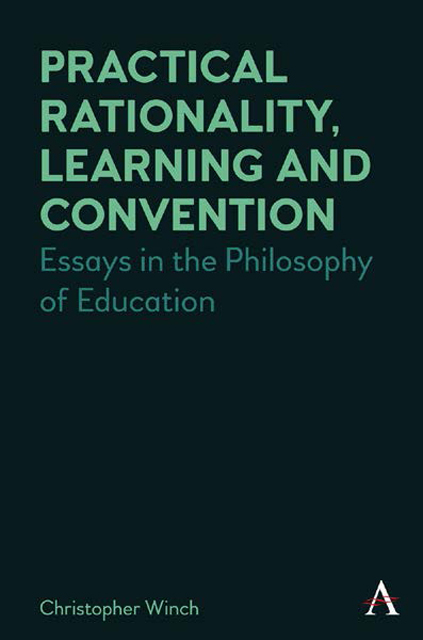Chapter Nine - Knowing ‘Wh’ and Knowing How: Constructing Professional Curricula and Integrating Epistemic Fields
Published online by Cambridge University Press: 09 December 2022
Summary
Introduction
This paper is concerned with the interpretation of professional curricula and qualifications in the light of the debate between ‘intellectualists’ and ‘anti-intellectualists’ concerning whether or not know-how is a species of propositional knowledge (see Stanley and Williamson, 2001). It argues that a central claim of intellectualists, that ‘knowing wh’ constructions are to be construed as only expressive of propositional knowledge is false. As professional educational examples make clear, not only are such constructions pervasive in curriculum and assessment documents but they often refer to cases of know-how. In fact, both the ‘know that’ and ‘know how’ interpretations of knowing wh are closely connected in professional education and this is essential for our ability to place our trust in such qualifications. This will be shown through examples. Neither intellectualists nor anti-intellectualists can give us an adequate picture of how such constructions work, let alone the work that they do in professional education. Not only should this prompt a rethink in mainstream epistemological debate about the role of knowing wh, but it should also make curriculum designers and assessors more aware of potential ambiguity in their documentation.
Much debate on the nature of knowing how (KH) has concerned the status of knowing wh to support the claim that KH is a form of propositional knowledge (KT), since knowledge expressed in ‘knowing wh’ constructions is propositional knowledge and a proper understanding of KH itself involves understanding it as a form of knowledge expressed through ‘knowing wh’ constructions.
This paper will look at the implications of a clear view of knowing wh for professional and vocational education. Knowing wh is a category of interest not only to philosophers but also to educators. I will argue that the treatment of knowing wh by educators and professionals has significant implications for philosophical treatments of knowing wh. In turn, philosophical debates on the nature of knowing wh have a bearing on our understanding of the way in which KH is conceptualised in professional curricula.
Educators of professionals want to know whether or not someone knows how to operate in a professional field of activity, and how well they know how to.
Information
- Type
- Chapter
- Information
- Practical Rationality, Learning and ConventionEssays in the Philosophy of Education, pp. 119 - 136Publisher: Anthem PressPrint publication year: 2022
